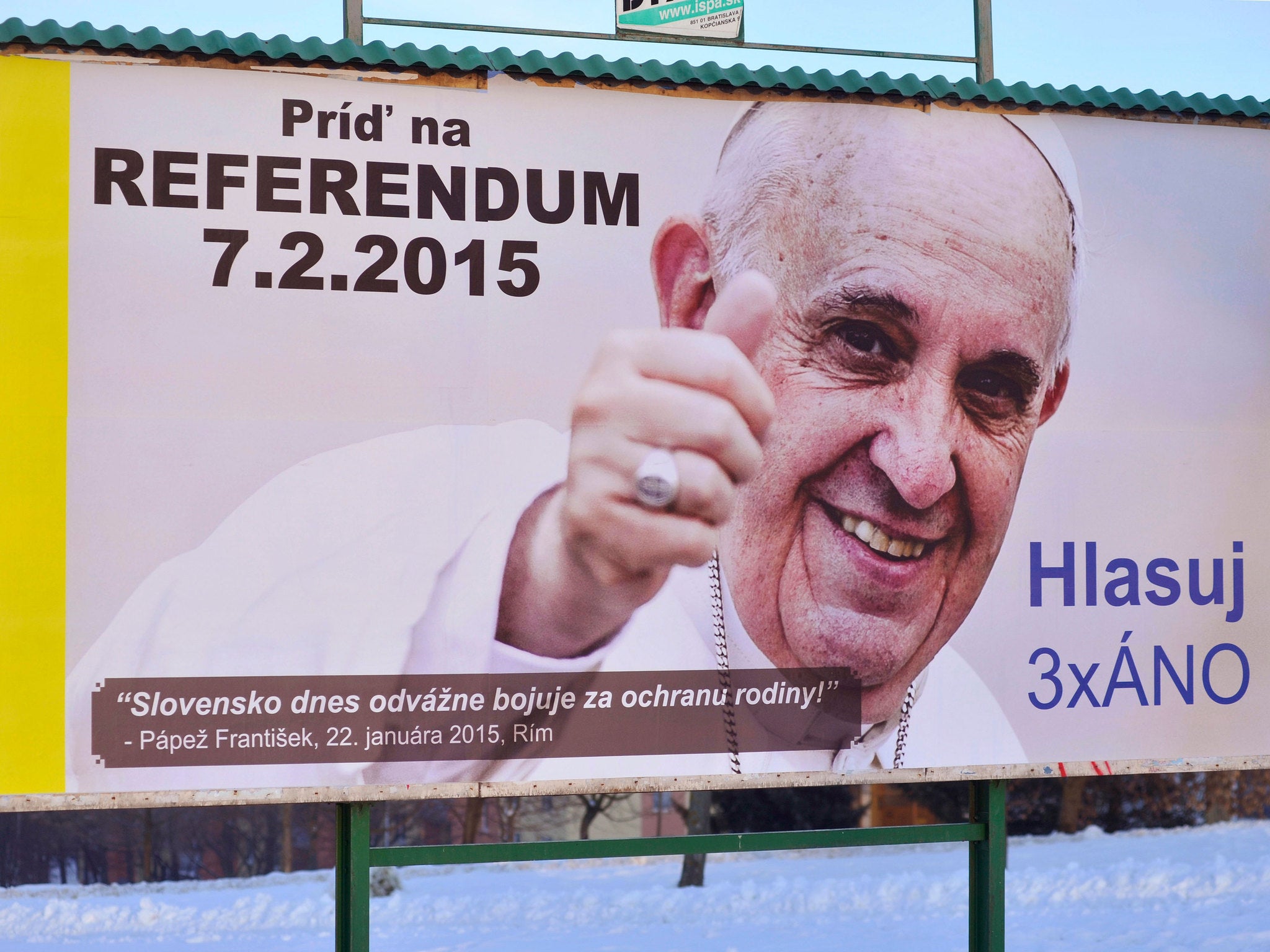Referendum to entrench gay marriage ban in Slovakia overwhelmingly supported but fails due to low turnout
The poll was back by more than 90 per cent of voters but failed to be legally binding as the turnout did not reach 50 per cent

A referendum which aimed to restrict gay rights was overwhelmingly supported in Slovakia, but failed to become legally binding as the turnout was too low.
Saturday’s poll asked voters if they agreed that marriage can only be a union between a man and a woman; that same-sex partners must be barred from adopting children; and it is for parents to decide whether their children receive sex education.
In response, a clear majority, 95, 92 and 90 per cent of those who voted agreed with the respective statements.
The referendum was forced by the socially conservative Alliance for Family group, which is backed by the Catholic Church.
But the vote is not legally binding, as just 21.4 per cent of the electorate voted, far less the 50 per cent required.
Anton Chromik, an Alliance leader, hailed the result and said he was delighted that such a large majority of referendum voters supported the proposals. He called it a “good base” to continue campaigning.
The group called the referendum a chance to "protect family, marriage and children".
Predominantly Catholic Slovakia does not recognise same-sex partnerships and has already amended its constitution to define marriage as a union between a man and a woman in June 2014.
The latest vote follows a similar referendum in Croatia, which succeeded last year.
It comes at a time when western members of the EU are granting their LGBT citizens the full spectrum of rights enjoyed by heterosexuals, while eastern states seek to entrench inequality and conservative values.
Romana Schlesinger, an activist for the LGBT community said, she hoped the government will now work to make it possible for same-sex couples to live in registered partnership “because all our partnerships, our families are living without legal recognition or protection.”
Additional reporting AP
Join our commenting forum
Join thought-provoking conversations, follow other Independent readers and see their replies
Comments